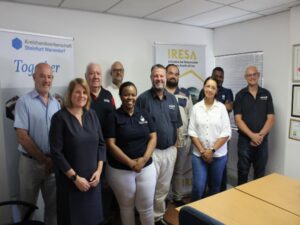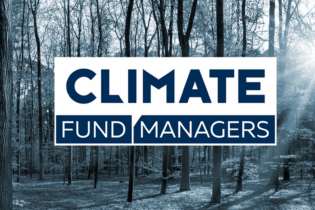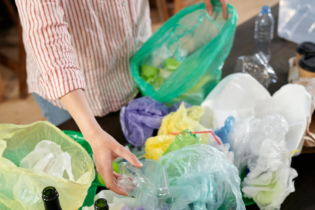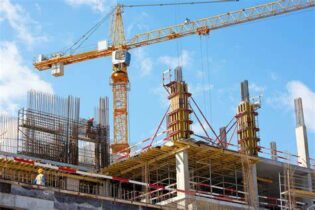Under the banner of the Responsible Economy South Africa (IRESA), prominent industry bodies, representing the private sector are ready to work closely with Government to facilitate sustainable economic growth.
IRESA connects Motheo TVET College and the private sector via its various industry body partners and combines all of their training requirements. These industry bodies include the Institute of Plumbing South Africa (IOPSA); Retail Motor Industry (RMI) Organisation; Plastics SA; Electrical Contractors’ Association; Master Builders South Africa; Corrosion Institute of Southern Africa; and SA Water Chambers. As one of its immediate priorities, IRESA wants to collaborate with Government to strengthen the enforcement of industry regulations and standards. Ethical companies are increasingly having to compete against sub-standard services and products. Because they do not comply with regulations and standards, these can be supplied at cut-throat rates. It is impossible for South African companies to compete on these unlevel playing fields because compliance comes at a cost. As a result, many companies have been forced to close their doors, leading to major losses in semi- and skilled jobs. This is not to mention the impact that the situation has had on skills development and training opportunities. It also undermines the country’s ability to innovate to find local solutions for its unique socio-economic challenges. For example, despite the acute water shortages that the country is currently experiencing, all but two of the 12 South African borehole pump manufacturers have closed their doors. The remaining 10 were forced to wind down because they were unable to compete against imported products. There are also no longer any South African manufacturers of taps, as well as copper or brass compression fittings. All of these products are now imported, some of which are of an inferior quality. The collapse of the regulatory system that is intended to ensure quality plumbing workmanship has also resulted in an influx of unlicensed plumbers in the market. More than 200 out of 300 respondents to a recent IOPSA survey noted that local authorities were not controlling plumbing installations in their jurisdictions. Only 50 reported that municipalities were, indeed, enforcing their bylaws. Worryingly, faulty plumbing places the health and safety of occupants of buildings and the general public at risk. This is in addition to the damage it causes to private property and municipal infrastructure. The electrical industry is beset by similar challenges. Counterfeit products are being installed in properties by unscrupulous operators without fear of recourse. Commonly counterfeited products include terminal connector blocks, timing switches, circuit breakers and earth leakage devices. This is in addition to multi-plugs and adapters, all of which can cause burns, electrical shocks and even fires. Meanwhile, the high demand for alternative power sources due to load shedding has attracted a flurry of counterfeit products, such as batteries, inverters and solar panels, to the country. There has also been an influx of unregistered electrical contractors in the market who offer illegal installations at very low prices to attract customers. To compete against these companies, many legitimate contractors have started to skimp on quality to the detriment of consumers and the reputation of the entire industry. There have also been isolated incidences of Certificate of Compliance (CoC) fraud in the industry. Electricians who are not registered are issuing CoCs, which bear the details of registered practitioners. They attained these details through unscrupulous means. IRESA’s Thomas Hirl says that IRESA is also providing an important forum for local industry bodies to coordinate their efforts geared at safeguarding their industries against misconduct. “Our partners have implemented many initiatives to help stem the tide – albeit some more effective than others, considering the sheer extent of the problem that cuts across industries. By meeting regularly, we are able to share initiatives that are working well and then approach government as a single voice with potential solutions to help strengthen regulatory regimes. We have worldclass standards and regulations, but without proper enforcement, they mean very little,” Hirl says. As he notes, Government is willing to work with industry to address malpractices. This was again reaffirmed by President Cyril Ramaphosa at the 2022 African Mining Indaba.Significant success has already been achieved in the petroleum industry where there is close collaboration between Government and the private sector. Under the Department of Minerals and Resources, partnerships have been formed between industry stakeholders and statutory bodies. This Petroleum Compliance Forum is responsible for investigating and dealing with instances of illegal trading in petroleum products. In just 24 months since the launch of the initiative, more than 130 cases reported via the South African Petroleum Retailers Association’s whistleblower hotline have been dealt with by the relevant regulators.
Government also supports the Tyre, Equipment, Parts Association’s (TEPA) Blow the Whistle Compliance Forum, which was introduced to eliminate the trade in illegal automotive parts in South Africa. This follows hot on the heels of the launch of TEPA’s whistle blower hotline where cases of illicit trading activity may be reported by industry and consumers. These are initiatives that could possibly be emulated by the other IRESA bodies. In 2021, the National Treasury also banned the use of imported cement on all of its infrastructure projects, following intense lobbying to do so by leading industry players. The new rules require all tender invitations to use South African-manufactured cement, produced from locally sourced materials. However, cheap cement imports from China, Vietnam and Pakistan are still being used on private sector projects. This threatens the sustainability of local manufacturers, placing more than 2 000 jobs at risk, considering the downturn in the construction industry. Local producers are currently only using a third of their production capacity. Worryingly, these products also contravene quality regulations. 14 imported products that were tested in South Africa were either over or underweight and of inconsistent quality, posing grave health and safety risks to the general public. Meanwhile, non-conformance with building quality standards continues to jeopardise service delivery in the country. The extent of the problem is evident on low-income housing projects. Defective buildings, unsafe structures and cost overruns are due to contractors not being held accountable for their workmanship to public authorities. This is exacerbating the large housing backlog in the country. There are currently more than 2-million households and individuals registered on government’s National Housing Needs Register. However, the situation is not unique to low-cost housing service delivery. Generally, municipal projects have underperformed over the past more than a decade. Numerous projects have not been delivered on time, at the right quality and within budget. Thus, there is also a need to address poor monitoring and policing of municipal procurement practices, as well as enforce Broad-based Black Economic Empowerment (B-BBEE) codes of good practice. This is considering that many Level B-BBEE companies are bypassing local content requirements and supplying cheap imported products that are of a very poor quality. A robust South African Revenue Services will also help to curtail fraudulent practices, such as dumping, under-invoicing, mis-declaration and the general undervaluing of imported goods. There is also a need to closely monitor the importation of steel products. A while back it was proposed that import rebates only be considered when security of local supply of products could be assured. Rebates on steel products are still in place even though there is still insecurity of supply. This is undermining local manufacture.






